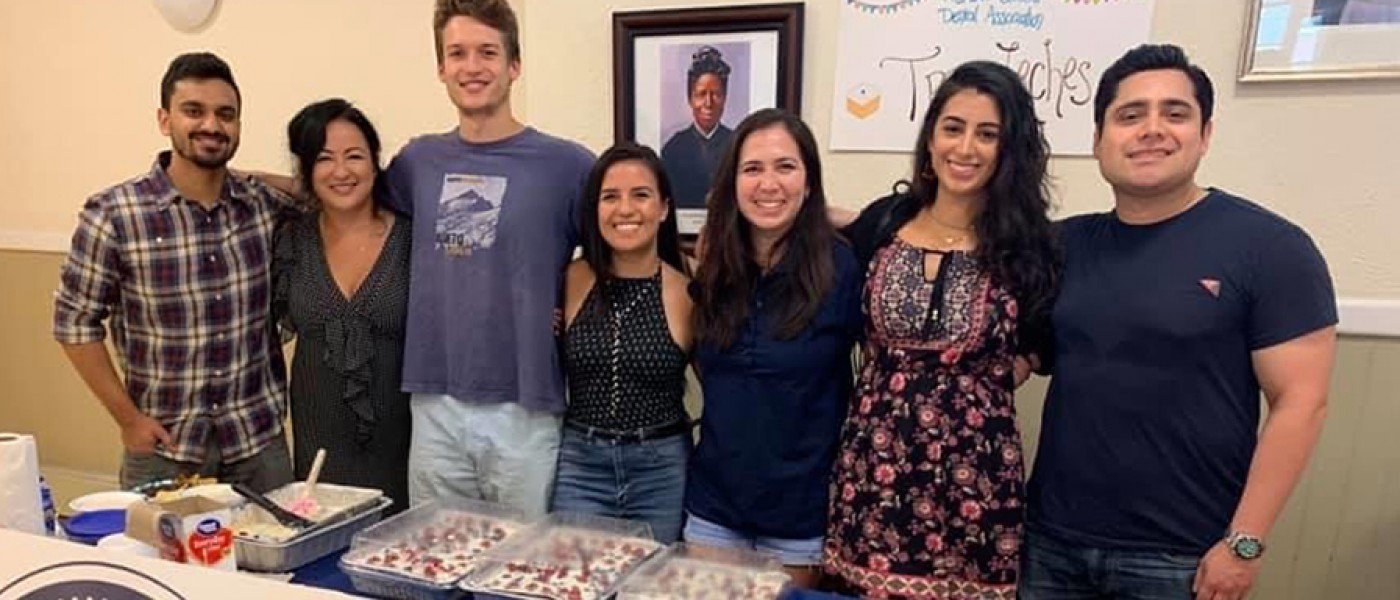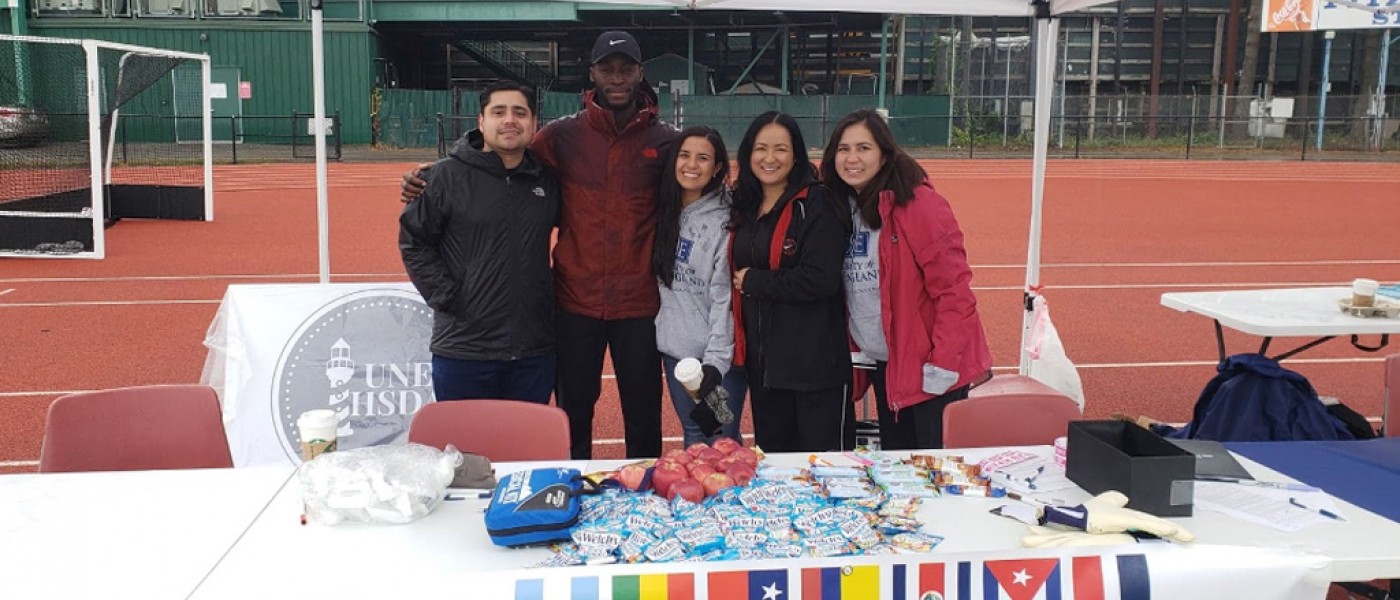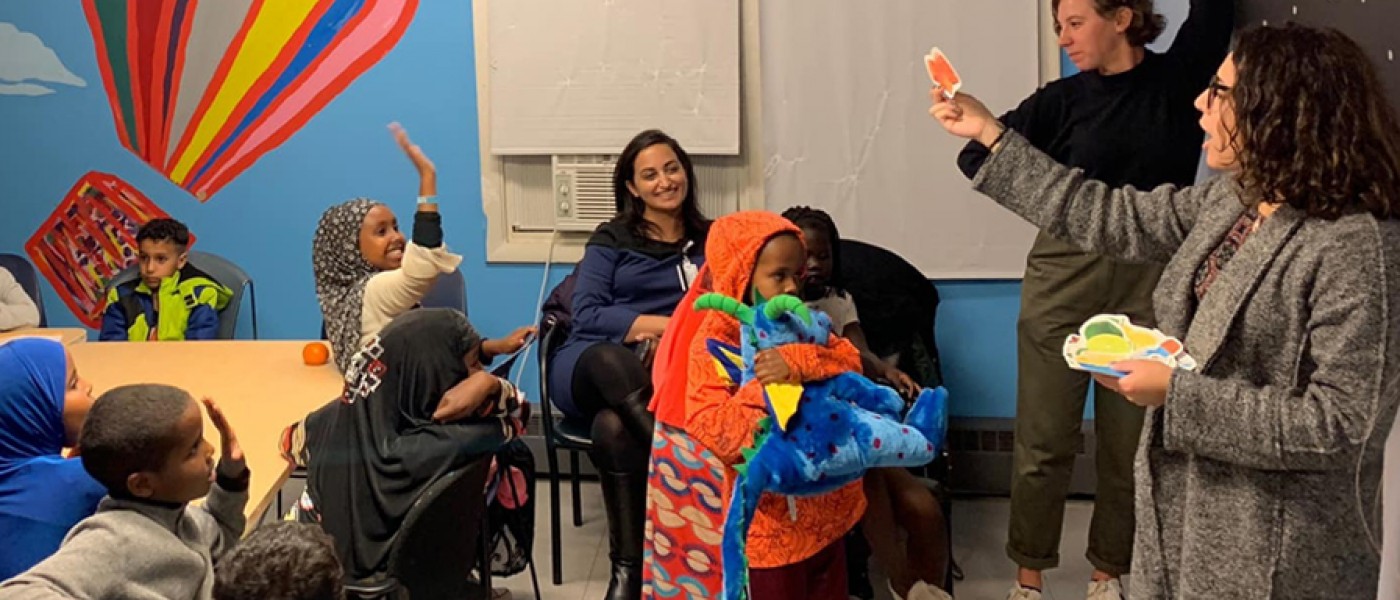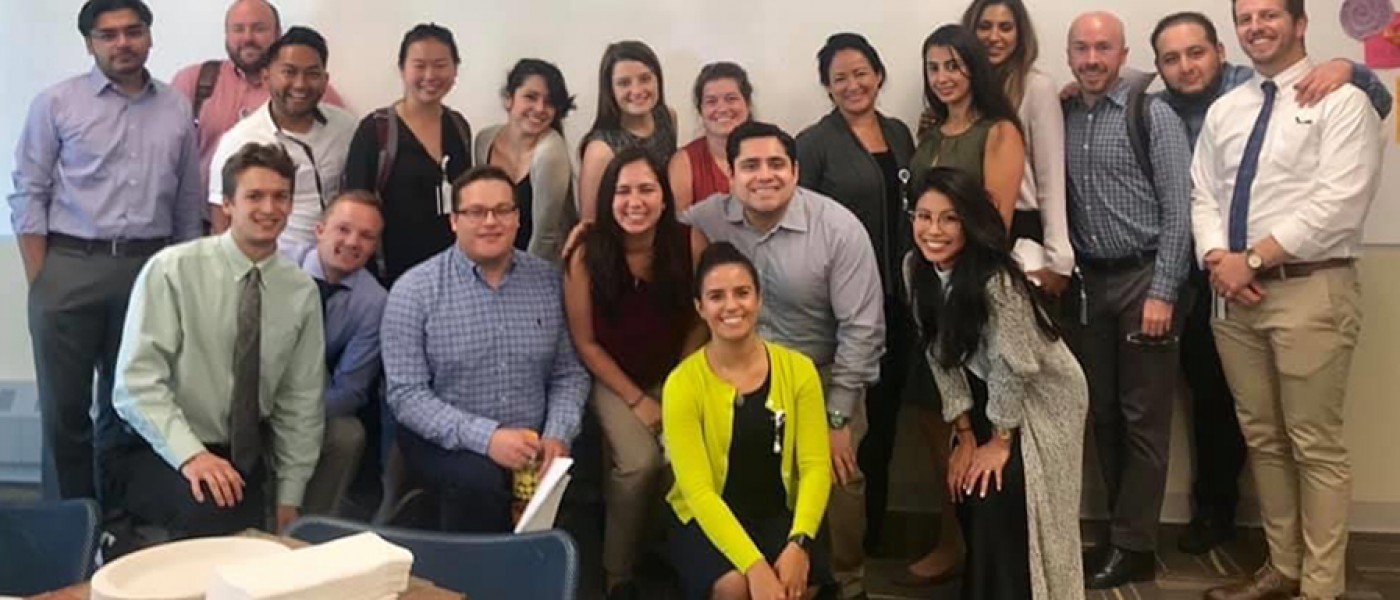About Diversity, Equity, and Inclusion
Diversity
The University of New England College of Dental Medicine (UNE CDM) broadly defines diversity to acknowledge and respect different identities, perspectives, and backgrounds in our students, faculty, professional staff, and patient communities. At UNE, diversity includes, but is not limited to, biological sex, gender identity, race, ethnicity, sexual orientation, socioeconomic status, religion, national origin, disability, age, or any other legally protected class. We also embrace viewpoint diversity to strengthen and enrich our academic and professional discourse. Diversity brings strength and richness in academic and professional discourse through the sharing of ideas and experiences. This exchange promotes innovation, growth, and discovery within higher education as well as within the profession of dental medicine.
Equity
We seek to provide equitable opportunities and experiences for all members of this community, including historically underrepresented and marginalized populations. We are also dedicated to the promotion of health equity, as evidenced by our mission to improve the health of Northern New England as well as rural and underserved areas. We believe that all individuals deserve access to quality and affordable oral healthcare and seek to improve access through advocacy, education, community service, and research. In our Oral Health Center, we welcome patients from all backgrounds and provide culturally sensitive, patient-centered care.
Inclusion
Inclusion is not an initiative at the CDM, but rather a shared value that’s woven into every aspect of our operations. Indeed, many who encounter our community for the first time describe it as extremely welcoming and tight-knit. In the classroom, we strive to build and nurture a culture of inclusiveness that makes students feel valued and heard, which not only improves their educational experience but also fosters their development into compassionate, empathetic, and collaborative oral healthcare providers.
The effort to build a diverse, inclusive, and equitable community is shared and requires a common responsibility among all members of UNE as we build a more just society.
Get Involved
College of Dental Medicine Diversity, Equity, and Inclusion Committee
- Prof. Eileen Dunfey
Faculty
- Dr. William Benson
- Dr. Oliver Keefer
Professional Staff
- Eva MacDuff
- Ronni Roberts
Students
- Esther Eiger
- Daniela Cerrillo
- Jency Shaji
UNE CDM has a number of student clubs, organizations, and programs committed to cultural diversity and advocacy.
Club and Organizations
- American Association of Women Dentists (AAWD)
- President: Valerie Wright
- Alpha Omega Dental Society
- President: Egan Sachs-Hecht
- Asian Dental Student Association
- President: Hannah Czarina Rustia
- Hispanic Student Dental Association
- President: Natalie Solari
- Black Student Union
- Christian Medical and Dental Association
- President: Carly Simpson
Programming
Throughout the year, members of UNE CDM attend and participate in cultural events, panel discussions, workshops, and seminars on topics such as implicit bias, cultural diversity in oral health care, generational diversity, and preventing workplace microaggressions.
Past programs and events have included a "Cultural Night," an African-American Trailblazers in the Health Professions and Sciences display recognizing Black History Month, a Spanish dental terminology class, and oral health promotion for minoritized groups.




Curriculum
The D.M.D. curriculum places an emphasis on the importance of diversity, equity, and inclusion in dentistry and provides opportunities for students to share their own cultural perspectives with their peers. Through coursework and patient care experiences, our students gain the skills necessary to provide holistic, culturally sensitive, patient-centered care to patients from diverse backgrounds. Some of the topics covered in our curriculum include:
- Cultural competency, humility, and implicit bias
- Attitudes, beliefs, values, and spirituality
- Vulnerable populations
- Social determinants of health
- Aging, grief, and loss
- Health disparities, cultural competency, and health policy
- Oral health and sexuality
- Health behavior models, communication, and conflict
Gender Inclusion
The UNE CDM is committed to providing a safe and inclusive environment to all students, regardless of gender identity. In conjunction with the Office of Intercultural Student Engagement, the University has implemented all-gender restrooms in most locations, and students have the ability to specify their preferred name, gender, and pronouns in various capacities.
Diversity Profile
Faculty*
Full-time faculty
- 26% HURE***
- 52% female
Part-time/adjunct faculty
- 6% HURE***
- 21% female
Students*
| Class of | Number of Students | Number of Male Students | Number of Female Students | Percentage of HURE** Students |
|---|---|---|---|---|
| 2018 | 64 | 30 | 34 | 1.6% |
| 2019 | 64 | 33 | 31 | 3.1% |
| 2020 | 64 | 32 | 32 | 10.9% |
| 2021 | 64 | 31 | 33 | 17.2% |
| 2022 | 64 | 34 | 30 | 26.6% |
| 2023 | 64 | 36 | 28 | 20.3% |
| 2024 | 64 | 36 | 28 | 14.1% |
| 2025 | 64 | 24 | 40 | 14.1% |
| 2026 | 64 | 25 | 39 | 9.4% |
| 2027 | 71 | 25 | 46 | 9.86% |
*Data is self-reported at the time of hire (faculty) or application (students) and updated at the start of each academic year. The table is not updated to reflect attrition.
**In their March 2022 report Slow to Change: HURE Groups in Dental Education, the American Dental Education Association (ADEA) defines HURE populations as "racial and ethnic populations that have been historically underrepresented in the dental profession relative to their number in the U.S. general population. HURE populations, who are represented in small numbers in the nation’s oral health workforce, include American Indian/Alaska Native, Black/African American, Hispanic/Latinx, and Native Hawaiian or Other Pacific Islander."
***HURE stands for historically underrepresented racial and ethnic populations at U.S. and Canadian dental schools and allied dental programs: Black or African American, Hispanic and Latinx, American Indian or Alaska Native, Asian American and Pacific Islanders, Indigenous/Aboriginal peoples (Canada) and Visible Minorities (Canada). ADEA Faculty Diversity Toolkit
